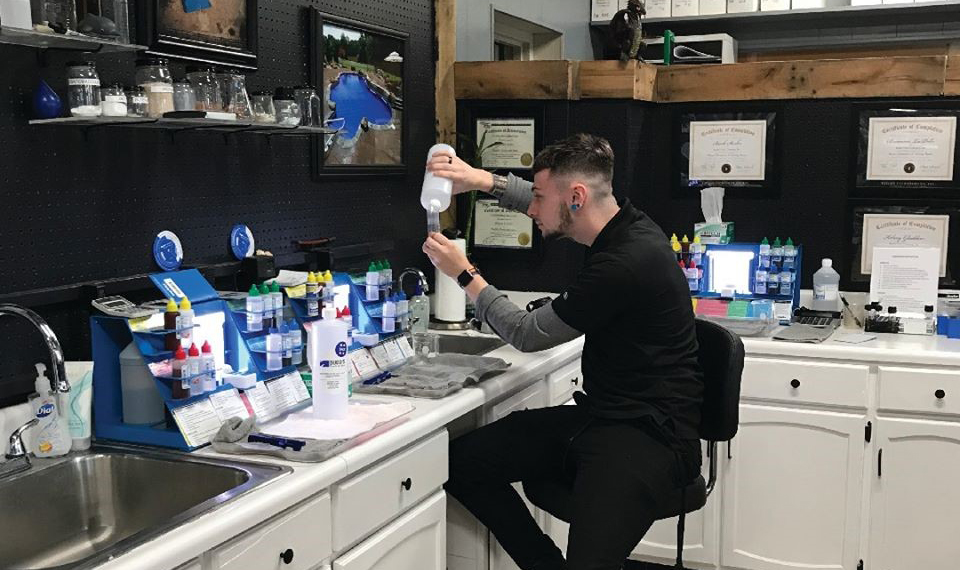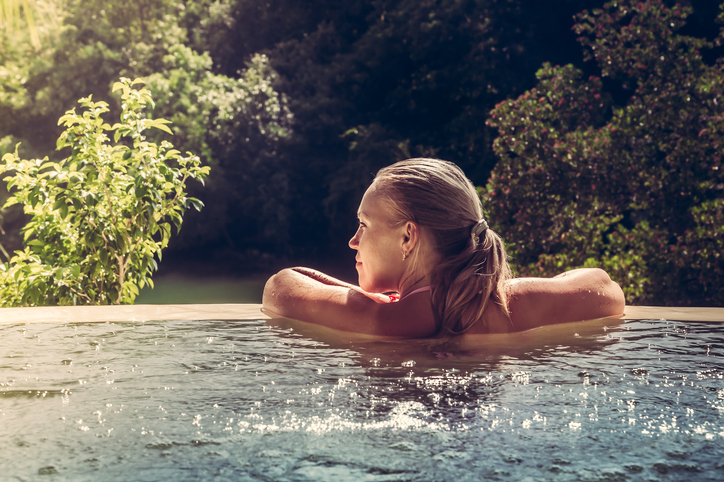Clear water, clean pool? Not necessarily

Only consistent testing keeps pool water clear, clean, balanced and safe.
By Chris Volk
My wife lets out a little groan when I open my water testing kit before I’ll get in a hotel pool or hot tub. She understands, though, what happens to people when the water looks clean, but the chemistry isn’t so pretty.
From minor eye and skin problems to more serious complications including lung irritation and infections, you really don’t want to get in water that hasn’t been properly tested and treated. And if you’re an owner, what’s bad for people is bad for your pool and hot tub surfaces, and your equipment, too.
You’re probably not going to pack a water testing kit to check the pool water on your next vacation, but there are a few warning signals you could look for.
Before you get in the water: use your nose
If you smell “chlorine” don’t get in the water. It’s not chlorine but ammonia you’re smelling. That’s a sure sign the water isn’t clean and balanced, and that means chlorine can’t do its job to protect your health.
After you’ve been in the water: watch for these signs before going back in
- Red eyes: In most cases it’s not a case of too much chlorine. According to the Centers for Disease Control and Prevention (CDC), the main culprit is urine, which combines with chlorine leaving it ineffective to keep water clean and healthy. Body oils, lotions, cosmetics and sweat can also have the same effect.
- Itchy Skin: It’s the same story as red eyes—too little free chlorine, too many (mostly human) pollutants.
- Cough: That high ammonia level that smells like chlorine can cause serious respiratory problems, especially in indoor pools. Indoor pool owners and managers need to be especially diligent about their water chemistry. They also need a well-designed ventilation system able to move the air at pool level.
One additional warning sign to look for, especially at public or commercial pools and hot tubs: how often do you see people doing water testing? Things can change in hours in a crowded pool, public or private. When the day is hot and the pool is crowded, a trained person needs to be testing the water every two hours.

